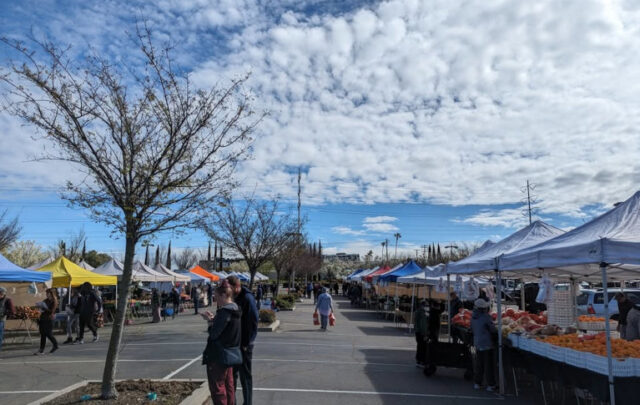There’s a new collection of Wendell Berry’s essays available, edited by Paul Kingsnorth of Dark Mountain fame, which was reviewed by premier league literary hack DJ Taylor in last week’s Guardian Review. Taylor’s review entertained me, because his reaction was quite similar to mine when I first read Berry in the 1990s:
“Hey, this is really conservative…reactionary…utopian…”
“Hang on, this is really humane, clear-eyed and, er, pretty convincing”.
I wrote a letter to the Guardian along these lines, which to my astonishment they published in this week’s edition. I was delighted to get the phrase ‘egalitarian agrarian populism’ into a national newspaper (I’d have preferred ‘left agrarian populism’, but in view of recent harangues here at Small Farm Future I wanted to aim for maximum inclusivity).
Taylor’s review touched on the issue of whether there were any UK versions of Berry – the closest he could think of were the Distributists “a bizarre coalition of traditional conservatives…and left-leaning radicals” who were “the last genuinely reactionary political movement in the UK”, together with the likes of George Ewart Evans and John Stewart Collis, who he concedes aren’t really very close.
Hmmm, well the Distributists may have been an odd bunch, but I’m tempted to say that modern advocacy for small-scale agrarianism only seems intrinsically reactionary if you buy into the hokum that ‘progress’ inheres in ever larger fields and tractors. And surely UKIP can stake a good claim for being the last genuinely reactionary political movement in the UK. But leaving that aside, agrarianism’s political lineages in different countries does strike me as an interesting topic.
Lenin distinguished between what he called the American and Prussian paths to capitalism – respectively ‘bottom up’ in a country of settler pioneers without aristocratic landownership (albeit neglecting here the issue of the aboriginal population), and ‘top down’ in a country dominated by such landownership. This idea was developed by later scholars such as Terence Byres and Barrington Moore1. But in Britain, or at least England, a primary and indigenous capitalist development bridging the aristocracy and the wider populace intercedes between these paths. England, stereotypically, was “a country of shopkeepers” – and latterly perhaps one of spivs, wide boys and even aristocratic wheeler-dealers. Could this explain the muddying of conservatism and leftism that Taylor identifies in the Distributists and perhaps for that matter across England’s history of rural radicalism in the likes of Blake, Coleridge, Morris, Lawrence, Orwell and so on – an undertow, at once politically radical and reactionary, to the grubby business of turning coin?
I don’t know, but it’s a theory… For my part, I’m not averse to embracing some of the conservative elements within that tradition, just as I’m not averse to embracing such elements within Berry. Still, I always feel a bit sceptical of that conservative tradition in Britain, and suspicious of its motives. Could Berry’s beautiful article on the ‘agrarian mind’2have been written by an English conservative? Maybe, but I suspect not without a patronising accent or two, a consciousness of where real social standing lies. At the same time, the leftist instinct to dissolve everything into social relations – nature as mere politics or social process – has its own limitations, illuminating as it sometimes is. Perhaps a ‘bizarre coalition’ of radicals and conservatives is no bad thing?
Such, at any rate, are my immediate thoughts on these matters. I’d be interested in other perspectives. Any suggestions for an English Berry, or what one might look like?
Meanwhile, since my letter in the Guardian Review doesn’t seem to have made it online, I’ll reproduce it here. Revolutions have been built on less…
“DJ Taylor’s review of Wendell Berry’s collected writings (Review, 4 March) evoked wistful memories. When I first read Berry twenty years ago I was a progressively-minded urban intellectual and, like Taylor, I instinctively tried to pigeonhole Berry’s thought as conservative, reactionary, utopian etc. Like Taylor, I failed – those elements are there, but only as one part of a supple and humane moral vision. I now work on a farm, and advocate for egalitarian agrarian populism however I can. The world needs Berry’s voice more than ever.”
I haven’t read any of Berry’s stuff for a while. Doubtless it’s not above criticism. What I remember liking about it is the impossibility of assimilating it to the dreary dualism of progress (ascent to a future golden age) vs. regress (descent from a past golden age). It may be that the future, like the past, will involve a larger proportion of the population working on small, labour-intensive farms than is presently the case. There’s no necessary implication there that the future will be like the past in other ways, or that it ought to be. But it’s worth thinking about how the way we have to or ought to farm conditions the other possibilities of our lives. Maybe I should write a blog about that – I could call it Small Farm Future…
Notes
- Moore, B. 1966. Social Origins of Dictatorship and Democracy; Byres, T. 1996. Capitalism From Above and Capitalism From Below.
- Berry, W. 2002. ‘The whole horse: the preservation of the agrarian mind’ in Kimbrell, A. (Ed) The Fatal Harvest Reade






